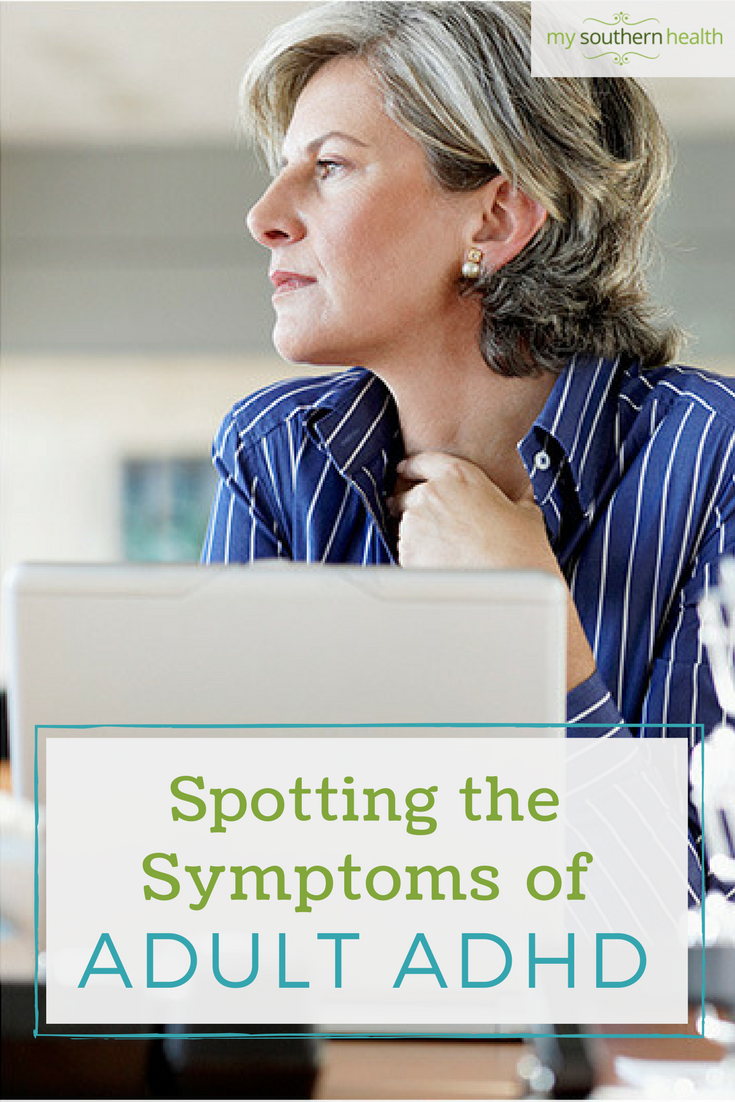ADHD is commonly associated with children but affects about 5 percent of adults.
The trouble with you is that you just don’t apply yourself. Why can’t you ever be on time? Why is everything always so last-minute? If you cared, you would remember.
Those lifelong struggles to stay on track, be on time and handle stress have caused problems and haven’t gone away no matter what. Here’s an idea. It might not be your fault.
Adult Attention Deficit Hyperactivity Disorder is real. While most everyone misses appointments or stresses out from time to time, adult ADHD may be diagnosed when symptoms cause ongoing problems in more than one area of life. Those with severe symptoms of ADHD are more likely to get fired, to be in car accidents and to drop out of school.
ADHD in adults usually presents in two ways. There are the ones who’ve always thought they had it, who’ve had teachers report difficulties but tried to deal with it themselves into adulthood. Other patients come in after the fallout, seeking treatment for anxiety and depression.
“Adult ADHD symptoms can drive the symptoms of depression,” said Corliss Savoie, M.D, a Vanderbilt psychiatrist specializing in ADHD. “Their self-worth is low. They get depressed, always feel overwhelmed and may have panic attacks. With ADHD, it’s more the rule than the exception that you also have depression and anxiety.
“It depends how it presents. If we find adult ADHD is driving the depression we might treat the ADHD first as it might be the underlying cause.”
Evaluation through a thorough history and physical, as well as neuropsychological testing including IQ testing and computer-based tests of attention and impulsivity, lead to a correct diagnosis.
Living with adult ADHD
Attention Deficit Hyperactivity Disorder is a bit of a misnomer. There’s no deficit of attention.
“It’s not that people don’t have the ability to focus,” said Savoie. “It’s about the regulation of that focus.”
At age 52, Susan Leathers of Brentwood was stressed over a work-related decision and enlisted the help of a psychologist. At one session, she mentioned ADHD, something her psychologist hadn’t considered.
“That’s because I am great at masking things,” said Leathers, who is not unlike many adults with ADHD in that regard. But Leathers shared about being late, making things take longer than they should, how family members share the same traits and more.
She was tested, and her long-held suspicions were correct.
“It’s not a personality flaw. It was affirmation that this is how I’m wired,” she said.
A few years after her initial diagnosis, a new acquaintance told Leathers about his ADHD and shared about how a support group and therapy had changed his life.
That a-ha moment led her to the support group, ADDNashville, which was founded by Nashville area psychotherapist Terry M. Huff, who also has ADHD.
“I walked out thinking, ‘I have found my people,’” she said. “Everything they said resonated.”
Since that day, she’s worked with a psychiatrist to figure out the right medication, which by the way, is not a magic bullet. She’s also found counseling, organizing systems and the support group to be immensely helpful.
Attention might be hyperfocused for those with ADHD. A project that was supposed to take two hours somehow became six hours and you forgot to pick up the dog at the groomer. Again.
Having your own a-ha moment? Is this you?
“First, ask for an appointment with your primary-care doctor and start the conversation there,” Savoie said. The provider can then refer to a psychiatrist or a psychologist for testing. Savoie treats both adults and children.
Books that Leathers and Savoie both recommend are “Living Well with ADHD” by Terry M. Huff, LCSW; and “Driven to Distraction” and “Delivered from Distraction” books by Edward M. Hallowell, M.D. and John J. Ratey, M.D.
Being open about her ADHD has lifted a weight for Leathers and helped friends and family understand her better. Dealing with its symptoms is still a daily discipline, but now she can celebrate her strengths. Those with ADHD also may be creative, for example. “I see things globally and pick up on things that others don’t,” she said.
Treatment can include medication management and behavior modification, Savoie said.
Behavior modification therapy may be with a psychologist, with other helpful resources being a referral to a life coach certified in ADHD treatment, working with personal organizers, support groups like ADDNashville, www.chadd.org and ADDitude magazine (www.additudemag.com.)
“As with anything, once you have a name for it, you know how to tackle it and live with it,” Savoie said. “Knowing you have adult ADHD means you can ask for help. This is the root cause and you are not lazy.”

If you see the signs of adult ADHD, call Vanderbilt Child and Adolescent Psychiatry at 615-936-3555 for help navigating the next steps.

